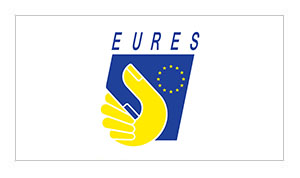The General Workers’ Union has joined its European counterparts in calling on the EU to protect and promote decent wages and collective bargaining, as the Adequate Minimum Wage Directive faces a challenge by Denmark and Sweden in the EU’s Court of Justice (CJEU).
“The Adequate Minimum Wage Directive is a massive leap forward in the realisation of the social ambitions of founders of the European Union. This is an important piece of legislation. And it must be upheld by the EU’s Court of Justice in Luxembourg,” said General Workers’ Union Secretary General Josef Bugeja.
Over 20 million of the lowest-paid working people in the EU stand to get a pay rise when the directive is fully implemented by member states. In addition, most workers in 19 member states will benefit from stronger collective bargaining to negotiate better pay and conditions.
“The Minimum Wage Directive is a lifeline for millions of workers who struggle to make ends meet and remains crucial for levelling up wages across the EU, reducing wage inequality and in-work poverty,” Bugeja said.
“In Malta, the concept of a minimum wage has been in place for some time, establishing national minimum wage levels, overtime rates, and even a cost-of-living adjustment mechanism that supports collective bargaining. However, the implementation of the EU Directive will be beneficial for all workers as collective bargaining coverage needs to be at 80% of the workers,” the GWU Secretary General said.
By promoting better wages, the Minimum Wage Directive boosts domestic demand, which is important to keep economies stable and promote social progress.
But a recent opinion by the ECJ’s Advocate General Nicholas Emiliou, in the current CJEU case, is concerning although non-binding if followed by the Court of Justice, it will cancel the aspirations of many to a better life and undermine working people’s support to the European project.
Josef Bugeja said the European Trade Union Confederation has already presented an alternative legal opinion explaining why the General Advocate’s opinion is fundamentally flawed, as it overlooks well-established European legal principles that recognise the value of decent work, collective bargaining, and social partner autonomy.
The EU is founded on democracy, human rights and the rule of law, and the EU must be able to protect and promote decent wages and collective bargaining. And precisely for this reason, the social policy chapter in the Treaties must be understood as fulfilling a rebalancing purpose to the powers of the EU.
As confirmed by the CJEU itself, the Union has not only an economic but also a social purpose, and the Treaties must be read. Economic policies cannot undermine the social objectives of the Union.
Flawed Advocate General opinion
In his opinion, the ECJ’s Advocate General has disregarded established EU Court of Justice case law, which confirms that measures not setting individual wage levels do not constitute direct interference with the exclusion of ‘pay’ – a principle upon which important pieces of legislation were established, including to ensure equal pay, holiday pay, maternity pay, equal pay for agency workers – to name a few.
The Advocate General’s reinterpretation also undermines the autonomy of the social partners, a cornerstone of the EU’s social model, by suggesting that wage competition justifies the ‘pay’ exclusion.
“This is a dangerous precedent that threatens the effectiveness of the EU’s social policies,” Bugeja said. “The Directive respects the diversity of national industrial relations systems while promoting dialogue between management and labour, a balance that is essential for social cohesion”
“Workers around Europe are facing a cost-of-living crisis that has seen a reduction in real wages, which is why encouraging member states to lift the wages of working people is a necessity.”
“The trade union movement will always be a key player in support of a rule-based system that delivers fairness for workers. But it cannot be that as soon as workers take a step forward, the goals are moved. Re-interpreting the treaties in direct contradiction with case law would be a fateful error.”
“It is critical to the European project that workers and their trade unions can continue to build on the CJEU’s case law that allows us to build a fair and just Europe in which working people can live in dignity.”











